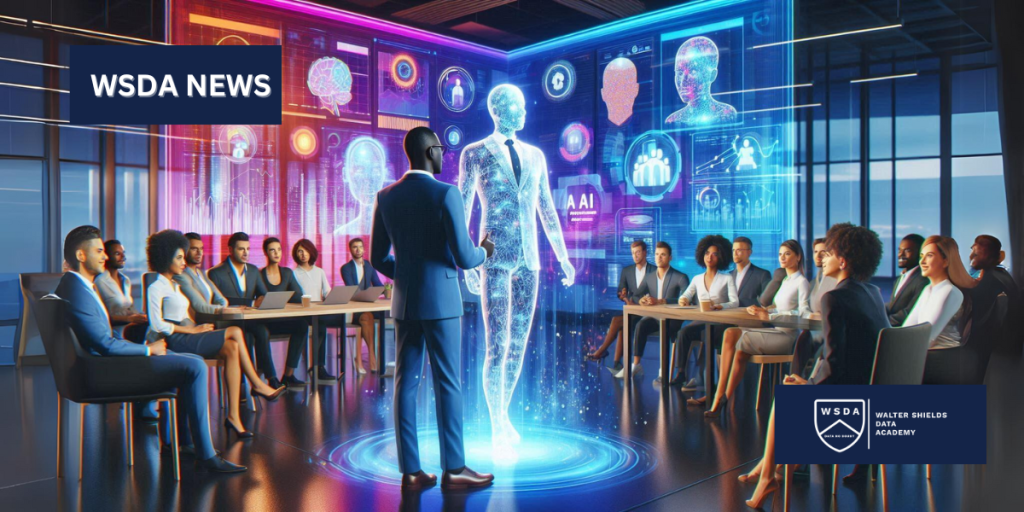Billionaire Tech CEO Advises Honesty About AI’s Effects on Employment

In the rapidly evolving landscape of technology, one thing is clear: artificial intelligence (AI) is reshaping the workforce. Jim Kavanaugh, CEO of World Wide Technology (WWT), offers a candid perspective on how corporate leaders should address AI’s effects on jobs. According to Kavanaugh, businesses need to be upfront with their employees about the real impacts AI will have on their roles.
Transparency in Leadership: No Room for False Reassurance
Kavanaugh emphasizes that leaders can’t sugarcoat or downplay the reality of AI’s disruptive potential. “Employees are too smart to believe that AI won’t change how work is done or that no jobs will be affected,” he says. Trying to convince employees that everything will remain unchanged is simply unrealistic. Instead, Kavanaugh advises business leaders to be transparent about the upcoming shifts. AI will bring about significant changes, but it’s essential to see these changes as opportunities rather than threats.
At WWT—a major player in IT solutions, cloud computing, AI, and data analytics—Kavanaugh urges businesses to be honest and transparent, especially when facing game-changing technologies like AI. While no one can predict AI’s full impact, being realistic about the fact that jobs will evolve is the best approach.
Embracing AI: The Key to Staying Competitive
Kavanaugh also offers valuable advice for professionals: “Everyone should become a student of AI and technology.” He believes that while some jobs will be disrupted, AI will ultimately enhance productivity. Rather than resisting this technological wave, he encourages individuals to embrace it, learn from it, and prepare for the new opportunities it will create. This advice holds true whether you’re a student, professional, or entrepreneur looking to stay ahead in today’s fast-paced economy.
The Ongoing Debate: Will AI Create or Eliminate Jobs?
The debate around AI’s impact on employment is not new, but it’s gaining momentum as AI becomes more integrated into daily work processes. A report by Goldman Sachs estimated that around 300 million jobs could be affected by AI automation. According to the report, roughly two-thirds of jobs in the U.S. and Europe are at risk of some level of AI disruption, with as much as 25% of tasks potentially being automated.
However, Kavanaugh remains optimistic. He argues that while AI may replace certain jobs, it will also create new opportunities. Clara Shih, Salesforce’s AI head, supports this view, noting that while some jobs will disappear, many new ones—roles we might not yet be able to imagine—will emerge. Historically, every major technological innovation, from the internet to automation in factories, has resulted in new job creation, and AI is likely to follow the same trend.
Shifting Job Descriptions: Preparing for AI Integration
Shih further adds that the rise of AI means that every job will likely require a new job description. As AI handles more repetitive tasks, human workers will need to focus on more creative, strategic, and emotionally intelligent aspects of their roles. Salesforce, for example, recently launched its AgentForce platform, which allows businesses to create AI-powered agents to enhance customer service and support. This illustrates how AI is transforming not only how companies operate but also how they structure their workforce.
AI as a Workforce Optimizer
Some companies are already capitalizing on AI’s ability to streamline operations. Swedish fintech company Klarna, for instance, reduced its workforce from 5,000 to 3,800 employees in a year by integrating AI into its processes. With AI taking over tasks like marketing and customer service, Klarna has managed to pay its remaining workers more while further reducing staff numbers.
This example underscores the fact that while AI may reduce the need for certain roles, it can also free up resources to invest in more critical areas, such as innovation and employee development.
Conclusion: AI is Here to Stay—Adapt and Thrive
As AI continues to evolve, professionals and students entering the workforce should recognize that AI is not just a passing trend. It’s a transformative force that will reshape industries and job markets. While it’s natural to have concerns about AI’s potential impact on employment, those who embrace learning, adaptability, and creativity will find themselves well-positioned for the future. As Kavanaugh wisely notes, “AI will be an enhancer and an accelerator—something that propels us forward, not something to fear.” Staying informed, adaptable, and open to the changes AI will bring is the key to thriving in this new era of work.
Data No Doubt! Check out WSDALearning.ai and start learning Data Analytics and Data Science Today!

